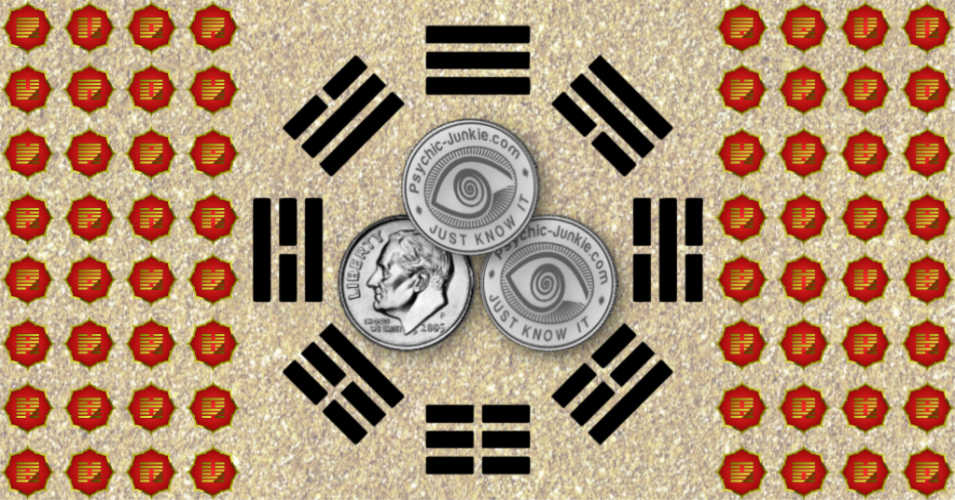

Yet we must not overlook the fact that apart from this mechanisticnumber mysticism, a living stream of deep human wisdom was constantlyflowing through the channel of this book into everyday life, givingto China's great civilization that ripeness of wisdom, distilledthrough the ages, which we wistfully admire in the remnants ofthis last truly autochthonous culture. This is the reason why China has forso long presented to Western eyes a picture of hopeless stagnation.
READ I CHING FREE
Thus increasingly hairsplittingcabalistic speculations came to envelop the Book of Changes ina cloud of mystery, and by forcing everything of the past andof the future into this system of numbers, created for the I Ching the reputation of being a book of unfathomable profundity.These speculations are also to blame for the fact that the seedsof a free Chinese natural science, which undoubtedly existed atthe time of Mo Ti and his pupils, were killed, and replacedby a sterile tradition of writing and reading books that was whollyremoved from experience.

The Ch'in and Han dynasties saw the beginning of a formalistic natural philosophy that soughtto embrace the entire world of thought in a system of number symbols.Combining a rigorously consistent, dualistic yin-yang doctrinewith the doctrine of the "five stages of change" takenfrom the Book of History, it forced Chinese philosophical thinkingmore and more into a rigid formalization.

In the course of time, owing to the great repute for wisdom attachingto the Book of Changes, a large body of occult doctrines extraneousto it - some of them possibly not even Chinese in origin - havecome to be connected with its teachings. Even the policy makers of so modern a stateas Japan, distinguished for their astuteness, do not scorn torefer to it for counsel in difficult situations. Not only that, but the very signboardsadorning the houses -perpendicular wooden panels done in goldon black lacquer - are covered with inscriptions whose flowerylanguage again and again recalls thoughts and quotations fromthe I Ching. Ingoing through the streets of a Chinese city, one will find, hereand there at a street corner, a fortune teller sitting behinda neatly covered table, brush and tablet at hand, ready to drawfrom the ancient book of wisdom pertinent counsel and informationon life's minor perplexities. Even the common-placesof everyday life in China are saturated with its influence. Indeed, not only the philosophy of China but its science and statecraftas well have never ceased to draw from the spring of wisdom inthe I Ching, and it is not surprising that this alone,among all the Confucian classics, escaped the great burning ofthe books under Ch'in Shih Huang Ti. The book sheds new light on manya secret hidden in the often puzzling modes of thought of thatmysterious sage, Lao-tse, and of his pupils, as well as on manyideas that appear in the Confucian tradition as axioms, acceptedwithout further examination. Small wonder then that both ofthe two branches of Chinese philosophy, Confucianism and Taoism,have their common roots here. Therefore it may safely be saidthat the seasoned wisdom of thousands of years has gone into themaking of the I Ching. Nearly all that is greatest and most significant in thethree thousand years of Chinese cultural history has either takenits inspiration from this book, or has exerted an influence onthe interpretation of its text. Itsorigin goes back to mythical antiquity, and it has occupied theattention of the most eminent scholars of China down to the presentday.

The Book of Changes - I Ching in Chinese - is unquestionablyone of the most important books in the world's literature. Introduction to the I Ching - By Richard Wilhelm Introduction


 0 kommentar(er)
0 kommentar(er)
